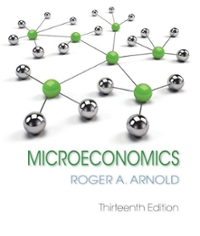Good economics turns out to be no more than common sense. If an economic doctrine doesnt make
Question:
Good economics turns out to be no more than common sense. If an economic doctrine doesn’t make common sense, then it can’t be good economics.
Hear what and how the economist thinks:
This is a widely held view, I think. If something goes against common sense, it can’t be right. Sometimes, in economics, though, we need more than common sense. We sometimes need more than “what just seems right or wrong to us.”
Take the previous example of the United States and Japan each producing two goods. We showed the data for the two countries in Exhibit 1 in which we saw that the United States was better at producing both food and clothing than Japan. In other words, the United States could produce both goods in greater quantities than Japan.
Now suppose we were to ask a person unfamiliar with economics if there is any benefit to the United States of trading with Japan. He or she might say that it is “just common sense that if the United States is better at producing both goods, then there is no reason for it to trade with Japan.” After all, just look at the numbers: The United States can produce 90, 60, or 30 units of food and Japan can only produce 15, 10, or 5 units of food. The United States can produce 10, 20, or 30 units of clothing and Japan can only produce 5, 10, or 15 units of clothing. But as we have shown, the United States is better off if it specializes in producing one good (the good for which it has a comparative advantage)
and then trading that good to Japan. In short, common sense doesn’t always lead you to the right answer.
Take another example. In an earlier chapter, we talked about Adam Smith’s diamond-water paradox. Diamonds are something you do not need for life, water is. Diamonds have very little use value; water has very high use value. Common sense might lead you to conclude that the good that has the higher use value (such as water) would have the greater exchange value (or price), but this is not the case. It takes an understanding of the difference between total utility and marginal utility to unravel the diamond-water paradox. Common sense, by itself, is not enough.
Questions:
1. Provide two examples, in which a common sense answer to a question turned out to be wrong.
2. Person 1 is better at being an attorney and at gardening than person 2.
Does it follow that person 1 ought to be both an attorney and do his own gardening?
Step by Step Answer:






